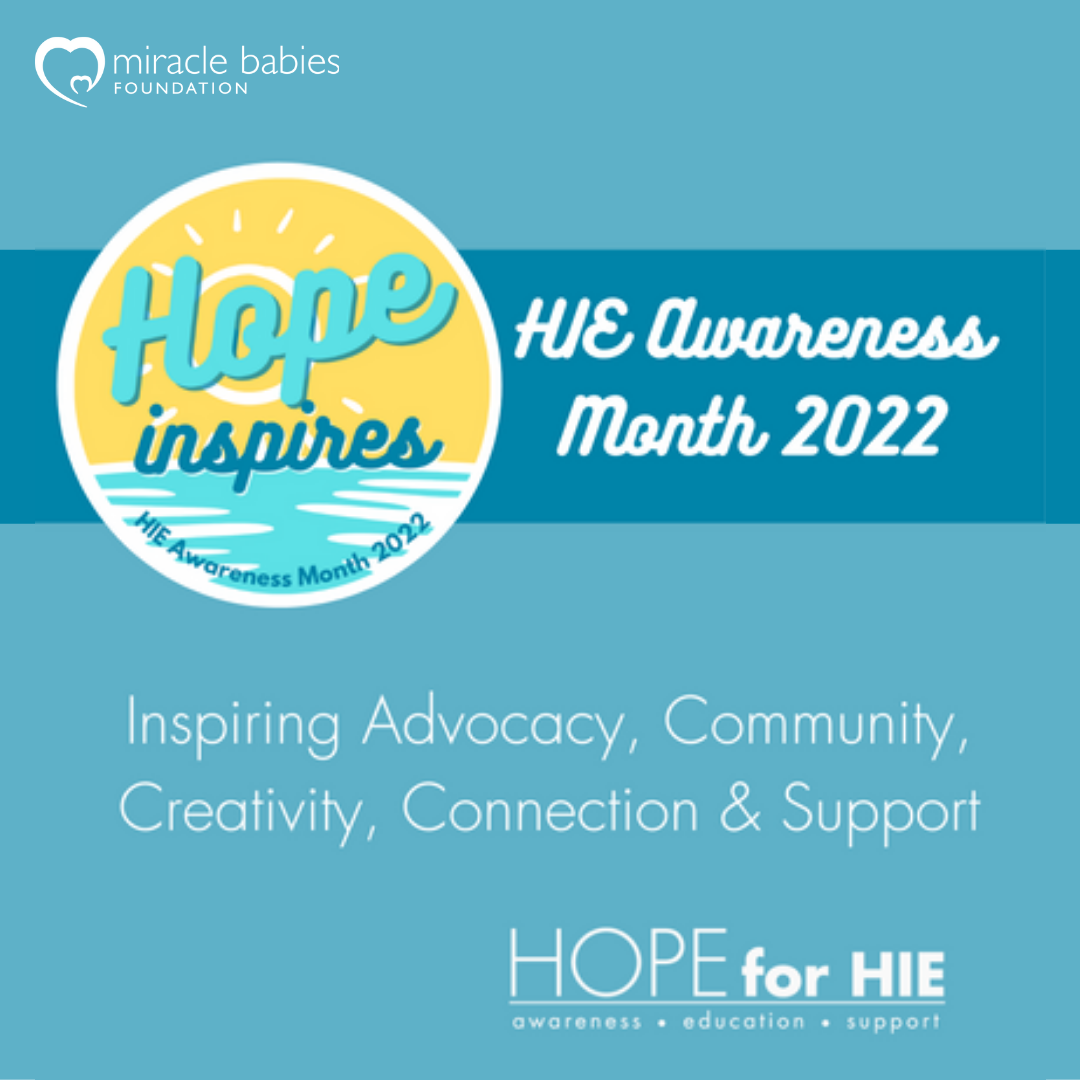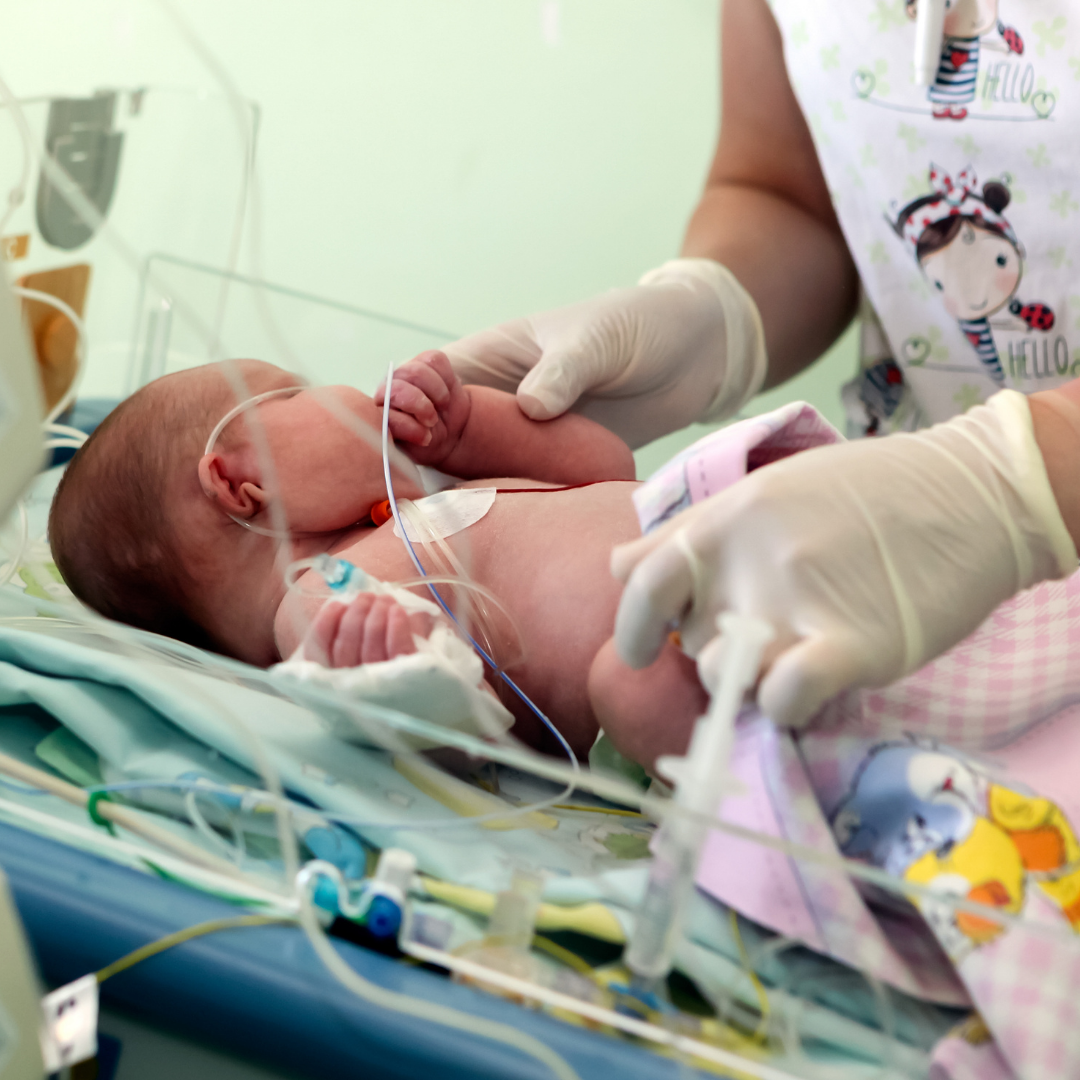2-3 of every 1,000 live births are impacted by Hypoxic Ischemic Encephalopathy (HIE), resulting in a unique NICU experience.
THURSDAY 21 APRIL 2022
2-3 per 1,000 live births in the world are diagnosed with a type of neonatal and pediatric brain injury, Hypoxic Ischemic Encephalopathy. This diagnosis carries an array of outcomes, from unaffected through loss.
While NICU's are commonly associated with premature babies, most HIE babies are typically near or full term, born very sick, and go through a unique NICU experience. HIE has a wide variety of causes - from placental issues to cord compression during birth - and has some pediatric causes like near-SIDS events.
HIE can lead to a variety of subsequent diagnoses, with the most common being cerebral palsy, epilepsy, learning and attention issues, hearing, vision and feeding issues, and other developmental delays and disabilities.
That means tens of thousands of families worldwide are impacted by HIE each year.

Since launching global HIE Awareness Month in 2016, more families are finding the evidence-based, psycho-social support they need to tackle the challenges their children may face as a result of HIE by finding a comprehensive network of peer-to-peer support through Hope for HIE.
This month is HIE Awareness Month, and Miracle Babies Foundation is highlighting the work of the Hope for HIE Foundation to bring worldwide awareness to this type of brain injury advocating for awareness, education and support to the over 7,000 families connecting worldwide, and for equity in care, communication and connection.
The more we know, the better care, communication and connection this incredible community of children and families can expect, bringing improved quality of life, dignity and respect.
Facts about HIE:
- HIE stands for Hypoxic Ischemic Encephalopathy, or lack of oxygen from restricted blood flow to the brain. It is a type of brain injury.
- HIE can cause cerebral palsy, epilepsy (including several rare epilepsies), hearing and vision impairments, learning and attention issues, feeding and GI issues, and other developmental delays and disabilities
- Most people haven’t heard of HIE, because disparities continue to exist in care, communication and connection for HIE families. Equity in NICU experiential messaging continues to be a barrier to awareness and understand for the general population, as many in the neonatal space have dismissed the lived experiences of non-premature families and conditions.
- HIE NICU experiences vary greatly from more well-known causes of NICU experiences like prematurity. HIE babies are typically born very very sick, and many qualify for a specific type of treatment called therapeutic hypothermic cooling, taking a babies body temperature to 32 degrees to slow down the chain reaction of the brain injury.
- HIE can be caused by placental issues, uterine rupture, cord compression, cord issues such as a true knot, placental abruption, labor that takes too long or is not followed properly. In young children, near SIDS events, near drowning, cardiac arrest and other ways to cause a lack of oxygen cause HIE.
- Outcomes from HIE vary from unaffected/mildly impacted to loss of life, and everything in between.
- There remains a significant gap of research dedicated to prevention and improvement in the onset of symptoms, but that is beginning to change.
- Organizations like Hope for HIE are working to improve the quality of life for children and families impacted by HIE through Awareness, Education and Support, connecting with top clinicians and researchers in HIE and newborn brain care to work to decrease the impacts of HIE.
About Hope for HIE
Hope for HIE is the premier global patient advocacy organization for neonatal and pediatric hypoxic ischemic encephalopathy (HIE) dedicated to improving the quality of life for children and families affected by HIE through awareness, education and support. Hope for HIE is a registered 501c3 nonprofit organization, based in the United States, connecting a global community of over 7,000 families, researchers and clinicians
For more information, visit Hieawarenessmonth.com
You can also contact the Miracle Babies Foundation NurtureLine, our 24 hour family support helpline. NurtureLine is available 7 days a week and is answered by our friendly staff who can transfer your call to an approved and trained family support team member. After hours calls are answered directly by our family support volunteers on a roster system in their own homes.


*source: Hope for HIE




